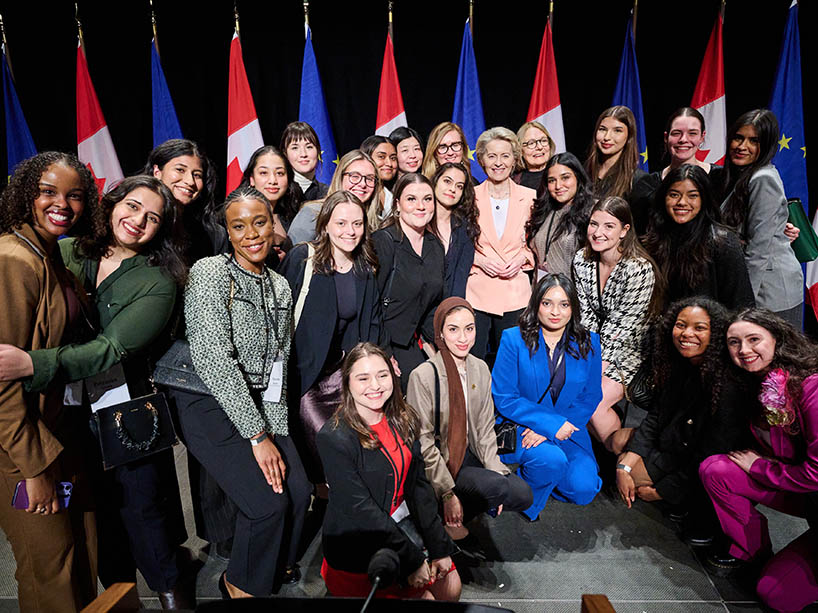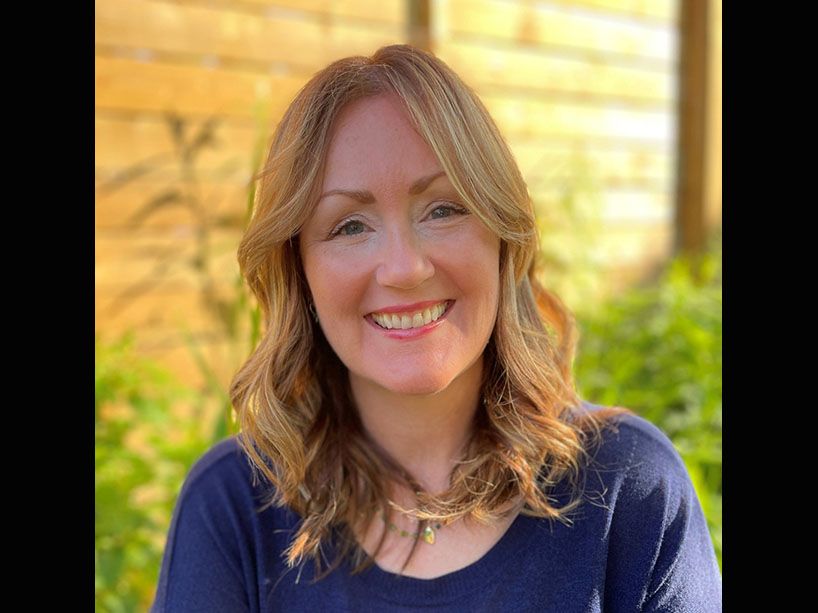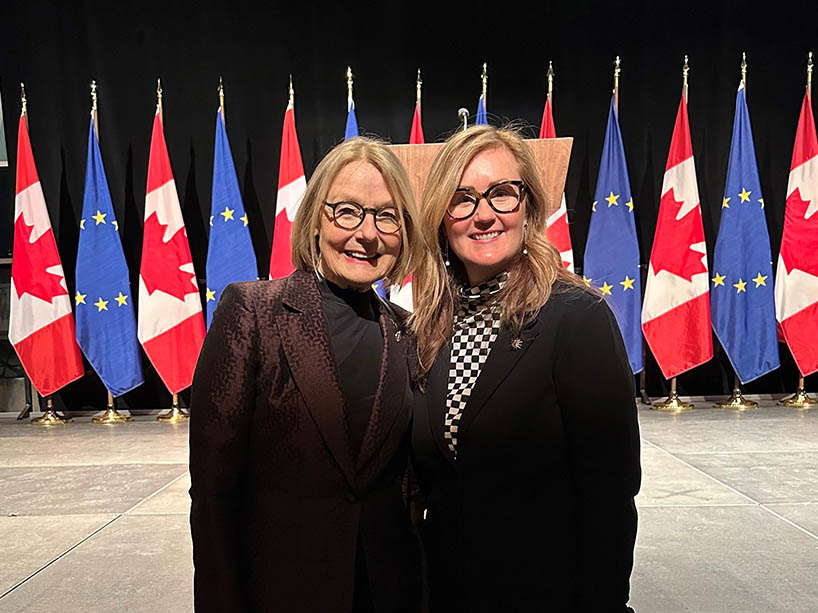How gender-based violence in politics undermines our democracy

Students from the Women in the House program visit Parliament Hill to shadow women political leaders.
The question of whether to run for political office in Canada is vastly different for women than for men.
It is not just about the barriers that women and gender-diverse candidates encounter within government institutions, but the personal attacks, online harassment and threats of violence they’ll likely also face.
Just this past spring, Ontario Liberal MP Pam Damoff, announced that she would not be seeking re-election (external link) due to the threats, misogyny and abuse directed toward her.
TMU Politics & Public Administration professor Tracey Raney said that even when women do make it into public office, they are not afforded sufficient protections against harassment, hate-speech, cyber-bullying and attacks.
“The issue of gender-based violence and harassment in politics can be viewed as one of democratic costs to representation and inclusion, to good governance and pathways to power,” says Raney, co-author of the recent book Gender-based Violence in Canadian Politics in the #MeToo Era (external link) (2024) on the social and cultural landscape that women must tread when entering politics.
Co-authored with Cheryl N. Collier, professor of political science and dean of the Faculty of Arts, Humanities, and Social Sciences at the University of Windsor, the book brings together experts to explore the lack of policies to address sexual harassment in the political workplace despite the #MeToo movement.
The book reviews scholarly research and identifies the barriers women and racialized people face accessing political office (external link) , including political parties, through systemic disadvantage in electoral systems and also through unbalanced media coverage of their candidacies.
What’s at stake? Diverse political representation brings more backgrounds and perspectives to the table, which improves representation and allows for more comprehensive and equitable advocacy for the issues affecting various Canadian communities.
Raney says we need to replenish the pipeline with diverse political candidates but that young people can be dissuaded by seeing the experiences of current MPs from underrepresented groups. It’s critical to think about the personal costs and also the democratic costs to civil society, and why we need to act now, she says.
The rise of toxic political rhetoric
With the recent U.S. election and the rise of misogynist political rhetoric—a toxic discourse that has become increasingly pervasive in Canada—politically ambitious women are increasingly the target of hateful social media messages, trolls and threats.
“What is most alarming about the spread of online hate in political spaces is how little is being done to address it in Canada,” said Raney. “In the recent U.S. presidential election, we saw how networked misogyny –the ‘manosphere’– was used to spread harmful gender stereotypes that far right leaders then tapped into for their own political advantage.”
While proposed federal legislation like Bill C-63 (the ‘Online Harms Act’), would help to address some harmful online content, Raney recommends more proactive policy protections for those who are disproportionately targeted by hate, such as women, gender-diverse, 2SLGBTQ+, Indigenous, Black and racialized people.
Representative democracy reflective of the Canadian electorate

Tracey Raney says that we need to replenish the pipeline with diverse political candidates but young people can be dissuaded by seeing the experiences of current MPs from underrepresented groups.
Those who hold political office in Canada are predominantly white and male. As of March, only 30 per cent of seats were held by women (external link) . Fourteen per cent of seats were held by people born outside Canada, and 14 per cent of seats were held by people aged 40 and under.
“Women, racialized people and young people are still underrepresented in the House of Commons relative to Canada’s population,” said Raney.
And once they’ve made it into Parliament, Raney explains, women politicians are not promoted to higher-status positions such as house leaders at the same rates as men, and don’t serve as long as men.
Raney’s recent book includes recommendations for lawmakers and policymakers, anti-violence advocates, academics and members of the public. “The problem requires an ‘all hands-on deck’ strategy,” she says.
Immediate steps should be proactive. “Government should adopt a national strategy to combat violence and harassment in the public sphere with a mandate that encompasses online spaces and real-world settings including electoral campaigns and inside legislatures.”
So how do we begin the hard work of dismantling the patterns of patriarchy prevalent in Canadian politics today? Raney says the first step is increasing representation by recruiting a more diverse pool of political aspirants.
Working towards better and more inclusive political representation, Raney, along with Peggy Nash, the Labour Policy Fellow in the Faculty of Arts and Chair of Ted Rogers School of Management's Centre for Labour Management Relations Advisory Committee, run the Women in the House program. Through an experiential learning opportunity over a two-day trip to Parliament Hill, participants shadow a woman MP in Ottawa as a way to gain real-world exposure to government, encouraging students to see themselves reflected in the political process.

Peggy Nash, the Labour Policy Fellow in the Faculty of Arts, left, and Politics and Public Administration professor Tracey Raney founded the Women in the House program to ignite the political ambitions of young women and gender-diverse people.
“This initiative is designed to empower women and gender-diverse individuals while addressing gender disparities in Canadian politics and leadership, allowing students to build connections, find mentorship and envision their own potential as political leaders and changemakers,” says Nash, a former Member of Parliament for the NDP.
Ensuring a safe political workplace
Efforts to support representation in politics need to go beyond recruitment and require a collective effort, says Raney. Government institutions must also assure a safe working environment for public officials once elected.
Raney points out recent examples of women political leaders coming together to speak out against toxic political environments and to push for policy changes.
In response to MP Pam Damoff’s announcement ending her political career, Halton regional elected representatives from all parties came together in support for each other across all levels of government (municipal, provincial and federal). The Halton Elected Representatives (H.E.R.) (external link) pledged to call out all forms of abuse and harassment in politics, and also called on elected officials to uphold standards of conduct conducive to respectful debate, and to prohibit personal attacks. They also called on authorities to ensure the safety of those who speak out against abuse, and who experience abuse, while offering them support.
Following H.E.R., the Canadian Association of Feminist Parliamentarians (external link) launched a similar campaign to draw attention to harassment, incivility and workplace toxicity on Parliament Hill. “They created a pledge for MPs to sign to draw attention to the issue in show of public solidarity and to encourage respectful dialogue and meaningful debate in political spaces,” said Raney.
Inspiring the next generation of political leaders
Students who want to make a difference should continue to call out gender-based violence in all its forms, and get involved in community organizations, campus groups and university governance.
Raney hopes students do not get discouraged. She encourages them to work towards better representation whether that means joining the campaign trail as a candidate or supporting women and gender-diverse folks who do.
“Consider running for public office,” says Raney. “Canada’s democracy will be better served when decision-making spaces look more like the people they purport represent, and that needs to include young people.”